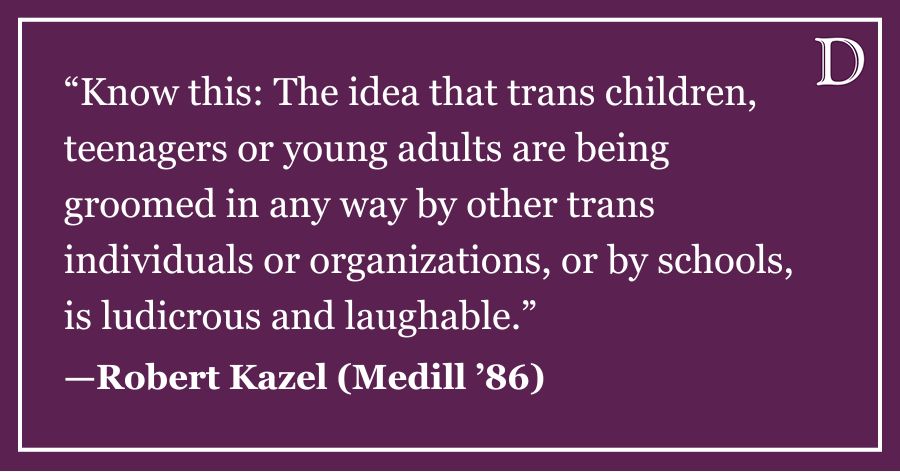
Last week, the NCAA announced its inaugural 13-member College Football Playoff selection committee. Evidently, even when the most universally despised organization in sports listens to the fans and does something right, it is met with substantial public backlash.
The 13 members of the committee will be led by Jeff Long, the current athletic director at University of Arkansas, and will also feature athletic directors Barry Alvarez (Wisconsin), Pat Haden (USC), Oliver Luck (West Virginia) and Dan Radakovich (Clemson), as well as big names like Condoleezza Rice, Archie Manning, Tyrone Willingham and Tom Osborne. Members are expected to serve three-year terms, selecting which four teams will compete in the College Football Playoff, as well as releasing biweekly rankings to update fans on their schools’ playoff chances.
The most prevalent critique of the NCAA’s selections, which admittedly was my initial reaction, is that personal interests will dominate decision-making and ultimately leave the committee susceptible to corruption.
“The Southeastern Conference representative in charge? Puh-leez,” ESPN’s Ivan Maisel said in a column last week. “It’s like putting Walter White in charge of the D.A.R.E. program at J.P. Wynne High. The conspiracy theorists, their backroom scenarios in tow, are sure to believe that the (insert conference here) will be deprived of its rightful place among the college football elite.”
Although Maisel is facetious in his writing here, these “conspiracy theorists” have dominated media discussion of the NCAA’s selection. Outcries from all regions of the country have echoed over the last week, yet we are left still wondering which conference will gain a selective advantage or disadvantage.
The answer? None. Take a quick look at the schools that have representatives in the selection committee. All five of them come from different conferences, with each of the traditional power conferences being represented. Conspiracy theorists who believe any conference will have an inherent advantage or disadvantage in the system are forgetting that each of these major conferences has representation within the committee.
Although five of the committee members are athletic directors, that means the other eight are capable of balancing out the respective interests and fighting for the proverbial Cinderella team each year. All eight of these other members have significant experience working with college football, including a lightning rod of public criticism in the past week, Condoleezza Rice, the lone woman on the committee. The former U.S. Secretary of State and daughter of a former college football coach has spent much of her life serving on executive committees and has proven to be a passionate and intelligent college football fan. Rice, the widely criticized choice, may prove to be the most helpful in mitigating the conflicting opinions.
Furthermore, the NCAA’s selection of committee members with personal attachments to teams is unavoidable. How could the NCAA select anyone who does not have personal interests regarding what teams are in the College Football Playoff? The NCAA would have to select people who have no prior employee or fanatic attachment to college football programs. This would cause a larger issue within the selection committee — a lack of college football knowledge — while the current members have served long tenures of integrity at their respective programs.
In 2012, Long fired Arkansas’s football coach Bobby Petrino, following an 11-2 season and a Sugar Bowl appearance, for allegedly compromising the integrity of the football program. The following season, the Razorbacks finished 4-8 in Petrino’s absence.
Long chose to sacrifice the success of his highly competitive SEC program for the sake of the school’s dignity. We can expect Long to continue this respect for the integrity of college football throughout his tenure as committee chair.
Personal interests are everywhere. Every college football human poll is full of special interests from both coaches and media members, but they ultimately balance out. Many people seem to be ignoring the fact that athletic directors and other members with personal allegiances staff the NCAA Division I Men’s Basketball Committee.
“If you trust the people that are working with you, they can work through all of the discussions,” George Mason athletic director Tom O’Connor, who chaired the Basketball Committee for five seasons, said in Maisel’s column. “That was relatively easy when I was on the committee, because there was a high level of trust….You find out that people are all working for the same goal and the same objective: to get it right, and get it right for, first and foremost, the student-athlete, then to get it right for everyone else, the school, the fans and what not.
The College Football Playoff selection committee will succeed in the long run because of its self-correction aspect. The members will serve terms of just three years, so if the NCAA evidently made poor selection choices, they have the power to reevaluate and make necessary changes as soon as possible.
College football fans must remember that making a change to a century-old postseason system is a lengthy process, but for now, the NCAA got it right.
Bob Hayes is a Weinberg freshman. He can be reached at [email protected]. If you would like to respond publicly to this column, send a Letter to the Editor to [email protected].













